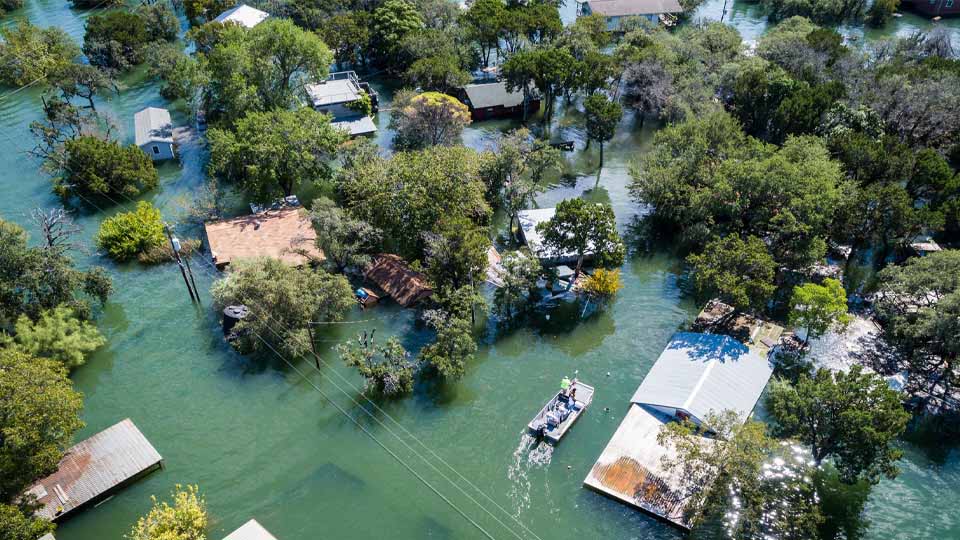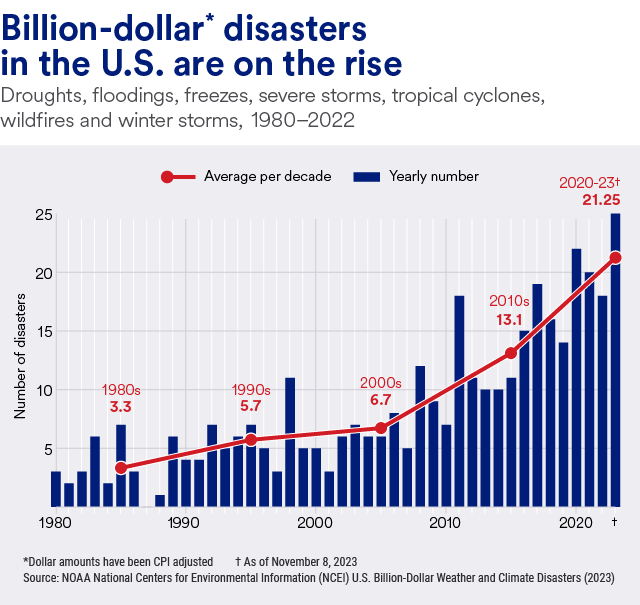When selecting policies, be sure to look beyond the premium price and read the fine print. Nicoski says the company’s experience, ratings and recent shifts (such as property insurers moving out of states like Florida and California) should all play into your decision.
“Ask your agent to identify the best options or conduct your own due diligence,” says Nicoski. “There are definitely situations where the ‘you get what you pay for’ mantra applies.”
Natural disaster preparedness: Keep good records
Also be sure to keep a record of your belongings, any purchase receipts (as required) and photos of those items. Include all important records and documents in this exercise, with a particular emphasis on any estate planning documents, wills, passports, deeds, and birth and marriage certificates. If you own a business, be sure to include any important contracts, business entity records, articles of incorporation and other documents for safekeeping.
You’ll want to keep those records updated and stored either in a mounted fireproof safe or as a “virtual record” in the cloud. With the latter, you’ll still be able to log in and access those records from a different device in the case of a major property loss.
“With all of the technology advancements at your avail, you should consider using Google Drive, Dropbox or another cloud platform,” says Yoo. “That gives you an easy way to scan and upload documents and keep them safe and easily accessible.”
Financial preparedness: Keep some liquid assets handy
In the immediate aftermath of a hurricane, earthquake, wildfire or other natural disaster, getting access to life’s essentials may be difficult for some time. For this reason, it’s always good to keep a certain amount of cash on hand and to also keep at least some of your other assets liquid and accessible.
“Ideally, you’ll want to keep about six months’ worth of expenses in some form of liquid investment, such as a money market or other type of account,” Nicoski recommends. You should also keep about $300 to $500 in cash for instant access, knowing that apps like Zelle can also provide fast access to funds if needed in the aftermath of a natural disaster.
Preparing your assets for the unexpected
When working with clients, Yoo’s focus has historically been on helping those individuals and families plan for retirement. Today, more of those discussions include how to plan for unexpected events that could potentially derail those well-thought-out plans.
Individuals and families can borrow a page from the business world, which has been creating disaster plans and assessing “what if?” scenarios for decades.
For example, you can look at what perils typically affect your region (such as hurricanes, floods, blizzards, wildfires, earthquakes or tornadoes), and then stress test your individual financial situation to see what would happen if a natural disaster occurred. A financial professional can walk you through these scenarios and determine which proactive steps make the most sense.
“We start with a baseline assessment and then add different scenarios to model out the level of potential disruption to your life and finances in the event of a natural disaster or other catastrophic event.”
Natural disaster preparedness starts now
Both Yoo and Nicoski say it’s never too early to start financial planning for a potential disaster, knowing that many of these events pop up at the most unexpected times. Using an insurance strategy, recording your belongings, storing those records in a safe place and incorporating “what if?” scenarios into your financial plan, you’ll be better prepared to recover and rebuild quickly when the unexpected happens.
Over your lifetime, both exciting and challenging life events can have an impact on your financial wellbeing. A financial professional can help you manage your finances and assess your insurance needs to prepare for important moments.




